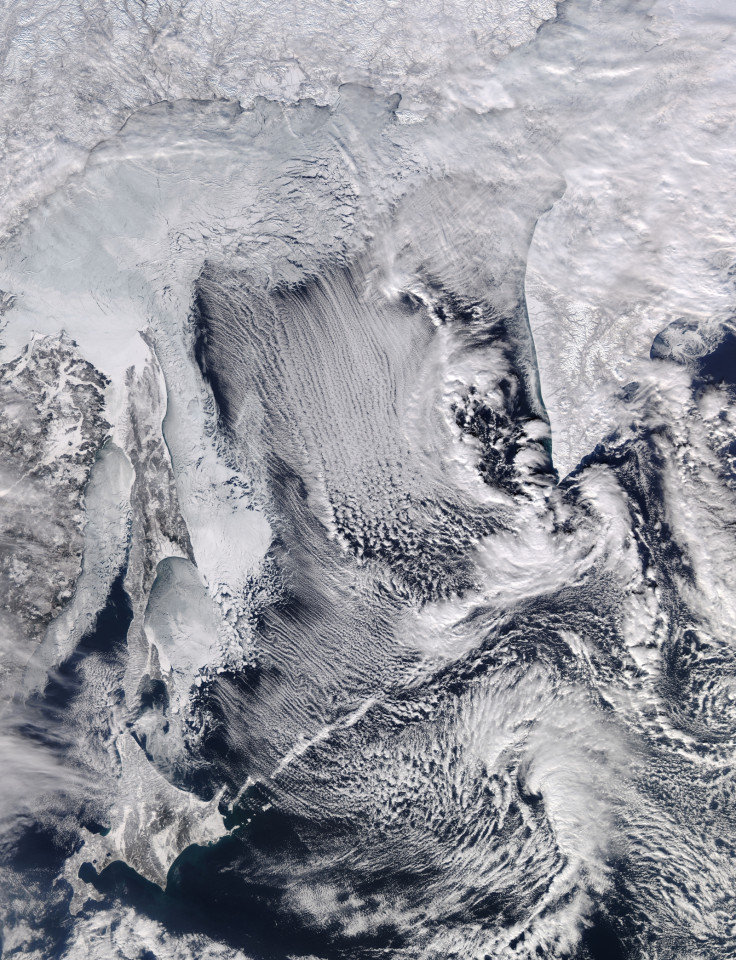'Climategate 2' allegations don't stand up to scrutiny
A 2015 paper finding that there was no 'global warming hiatus' has been verified in independent studies.

The Mail on Sunday used a "fake graph" in a story claiming to challenge the validity of a scientific study that found the global warming hiatus of the early 2000s never happened, climate scientists say.
The newspaper claimed that the 2015 study published in the journal Science used "misleading, 'unverified' data", which led to countries including the UK and the US signing up to the Paris Agreement, a pledge to reduce carbon emissions to mitigate climate change. The news story is based on an interview with retired National Oceanic and Atmospheric Administration scientist John Bates, who wrote in a blog post that the authors of the 2015 paper – also NOAA scientists – failed to share their data using NOAA's official archives.
Bates told the Mail on Sunday that the timing of the paper's publication in June 2015 was "blatant attempt to intensify the impact" it would have on the UN meeting in Paris in December that year.
However, climate scientists say that they have both been able to access the data used in the study and have verified it using independent methods, after it was made available on a NOAA ftp site.
"As someone who works on and develops surface temperature records, the data they provided would be sufficient for me to examine their analysis in detail and see how it compared to other groups. In fact, I used the data they provided shortly after the paper was published to do just that," wrote Zeke Hausfather, climate scientist at Berkeley Earth, in a blog for CarbonBrief.
Hausfather published a paper in January finding that the 2015 study's results were backed up by independent methods including satellite radiometry and data from robotic floats. The findings in the 2015 paper were found to agree with other datasets such as those at the Met Office's Hadley Centre in the UK.
This article is so wrong its hard to know where to start https://t.co/i015AysbUe. Satellites, buoys, and Argo all agree with new NOAA record pic.twitter.com/yz4nlkvFah
— Zeke Hausfather (@hausfath) February 4, 2017
Scientists have said that a graph originally used in the Mail on Sunday article was misleading, claiming to show that the 2015 NOAA data was significantly higher than Met Office data. However, the graph uses different baselines for the two sets of data. The NOAA data uses the older baseline of 1901 to 2000, while the Met Office data from the Hadley Centre uses the higher baseline of 1961 to 1990 average. When the datasets are given the same baseline, the results agree very closely.
After publication the caption of the graph in the news story was updated to remedy the "previous inadvertent omission that NOAA and [the Hadley Centre data] use different baselines", its author David Rose tweeted. However, at the time of publication of this article, the graph had not been replaced with one reflecting a shared baseline.
Hilarious screw up by @DavidRoseUK and #FailOnSunday
— Gavin Schmidt (@ClimateOfGavin) February 5, 2017
1st picture is 'evidence' of misconduct, 2nd shows diff when baselines are correct. pic.twitter.com/R5VsqqlNHr
The London School of Economics said in a statement that the news story "uses a fake graph to completely misrepresent the data". Several other allegations in the article have been countered by climate scientists including Peter Thorne of the University of Maynooth, Ireland, Victor Venema of the World Meteorological Organization, and Eric Davidson of the University of Maryland.
UPDATE 8 February:
The US House Science and Technology Committee chairman Lamar Smith, who led an investigation into the 2015 paper at its time of publication, thanked Bates in a statement "for courageously stepping forward to tell the truth about NOAA's senior officials playing fast and loose with the data".
However, Bates has since clarified that he was not accusing the authors of the 2015 paper of manipulating data.
"The issue here is not an issue of tampering with data, but rather really of timing of a release of a paper that had not properly disclosed everything it was," he told E&E News on 7 February.
The World Resources Institute, a global organisation for research on natural resources, said in a blog post the same day: "Climate deniers will continue to spread misinformation, but we cannot run from the fact that the world is warming. Without a sustained response, the impacts will undoubtedly get far worse."
© Copyright IBTimes 2024. All rights reserved.






